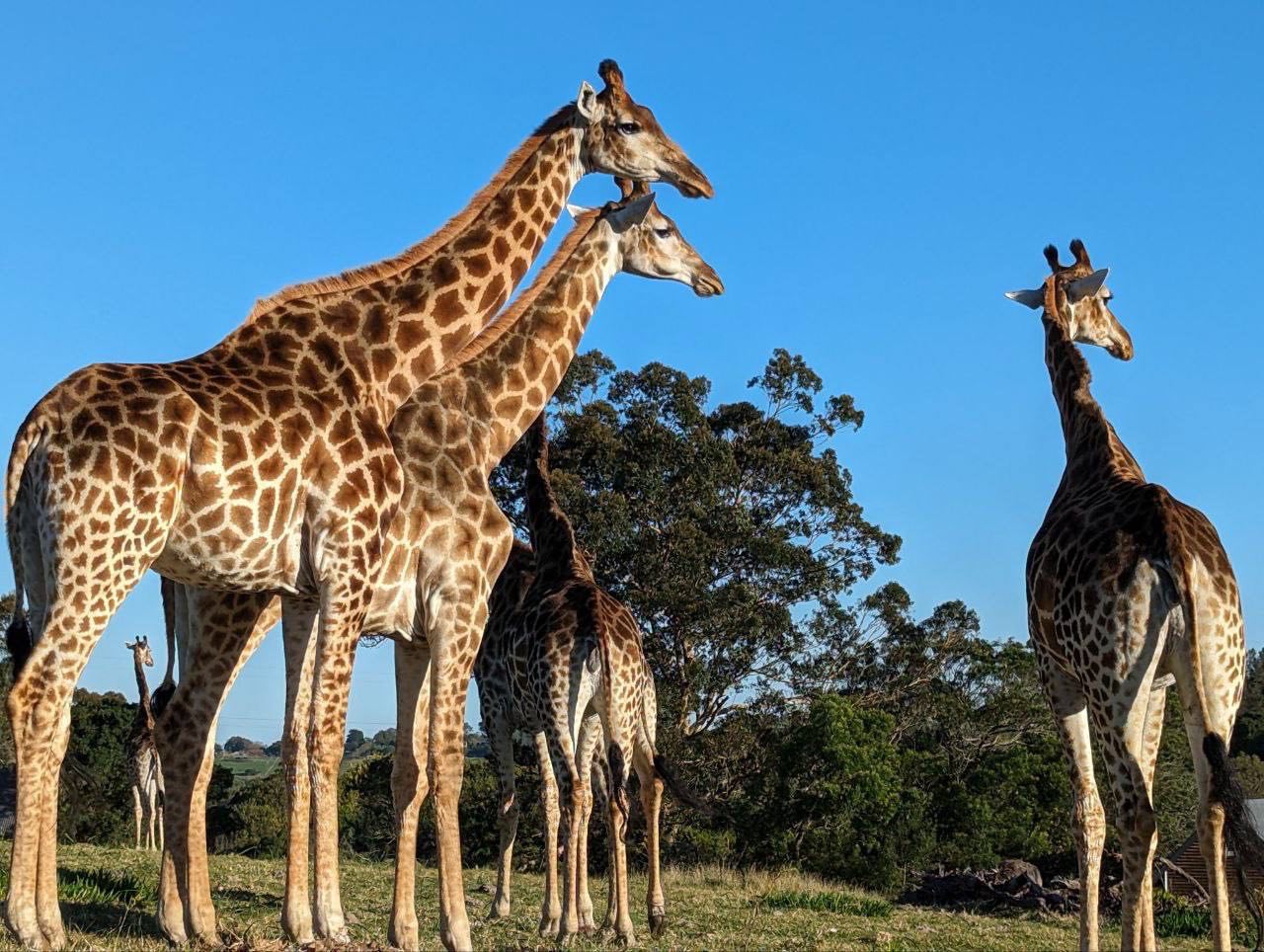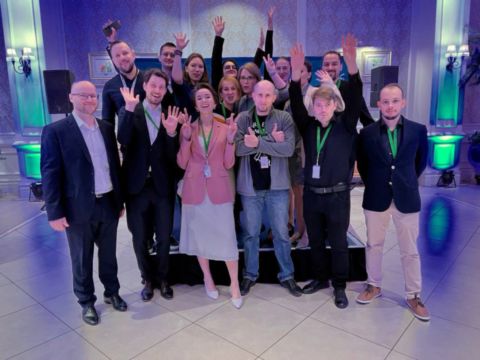The young philosopher Anastasia Gulevataia, a researcher at the SUSU Research and Innovation Services, had a unique opportunity to attend the BRICS Young Scientists Forum, which was held in the city of Gqeberha, South Africa, from July 31st through August 2nd. The forum is held for the eighth time, bringing together scientific youth from Russia, China, Brazil, India and South Africa.
African winter
Acquaintance with the members of the delegation began on the Moscow-Abu Dhabi plane. Anastasia sent a message to the general chat of the conference participants − and the buzzing of the smartphone echoed in the next chair. A girl from Kazan flew there. The Russians got to know each other on their way, the rest of which they travelled together.
The delegation of 24 young Russians included scientists of various interests: oceanologists, ichthyologists, psychologists working with primary school children. Anastasia represented the most exalted of academic areas − philosophy.
The last flight to the destination was operated by local African airlines in an old propeller plane. When landing, the plane was shaking pretty much, and passengers could see that the pilot was reading prayers and signing himself with a cross. The adventure was about to begin!

Johannesburg welcomed the guests with sub-zero temperatures, it is winter in South Africa now. In Port Elizabeth, on the very edge of the continent, it turned out to be a little warmer − about plus 10. One guy from the Russian delegation even managed to plunge into the waters of the ocean in the morning after a run. In general, there was little time for walks due to the tight program schedule. The Russians were able to get to the shore as a company of tourists and photograph the sunset only on the third evening: for the first two days a gale was blowing and it was drizzling, the air was humid, as if someone was spraying with water.
Three sections of the conference were held from nine in the morning until six in the evening, from breakfast to dinner. Each participant was given 10 minutes to speak, then the participants asked a few questions. Buildings in South Africa usually do not have heating, and coffee during coffee breaks helped them to get warm.
The farewell banquet was held by candlelight, to the sound of live African music. Indian girls were in saris, Africans were in national costumes. The Chinese preferred an accentuated business style of dress, while the Brazilians and Russians looked casual, and in general, according to Anastasia, we are similar to Latin Americans in many ways − not in appearance, but in mentality.
The Russians took over the piano in the hall and played Russian songs on it all evening, while other guests swayed and sang along, not even knowing the words. Another international group played the Crocodile game (guess the word in English). There was almost no difference in accents.
On the penultimate day, the Russians managed to get to the Kragga Kamma safari park. After heavy rains, the minibus got stuck in the middle of the road and a tractor had to pull it out. Giraffes crossed the road, spiral-horned antelopes grazed in the meadows. So many photos were taken, albeit through the glass of the bus!
There was no time for shopping, but still, what a humanist will pass by a bookstore! Anastasia also managed to get into the bookstore, though already at the Johannesburg airport. She paid attention to the abundance of books about religion and esotericism, the covers with the portrait of Vladimir Putin caught her eye. Magazines at the airport were also full of Political news about Russia. So, people on the other side of the world are also interested in our country.

Digital anthropology and the future of education
The section in which Anastasia spoke was called "The Future of Education, Thinking and Skills". She was the only philosophy representative there, but there were many teachers. They mainly talked about new technologies, how to form students' knowledge and competencies, and how to confirm the result with numerical measurements.
Anastasia's report was on a completely different, existential plane and was devoted to how education should make a human out of a human. Based on Viktor Frankl, on the classics of French, Russian and ancient philosophy, she urged to take a look at the educational process at a different angle, not at as the sum of technologies and memorized information. The act of spiritual formation is much more important, especially in the era of digital temptations.
However, a science is not a science without experiment and reports! Anastasia spoke about the work of the "Digital Anthropology" team at SUSU, about the experience of keeping "stoic diaries", and about how ancient philosophy positively affects the mental well-being of students.
Of course, the forum participants were interested in Anastasia's speech. In her report, she mentioned an Indian girl who delivered the report before her, she seemed close to her in spirit, and a business discussion served as the beginning of a good friendship. At the end of Anastasia's speech, the young African asked the question of how religion is able to influence secular education in Russia, now and in the future.
The conference is over, but next year it will bring together participants from the BRICS countries again, and this time in Russia again, in the city of Kazan. Only some other lucky people will attend it − young scientists can take part in the forum just once in their lives.
The main message of Anastasia's speech was "human needs a human." Just such a meeting took place at the forum – meeting of different people and at the same time people united by scientific enthusiasm, the warmth of which cannot be felt in an online format.




